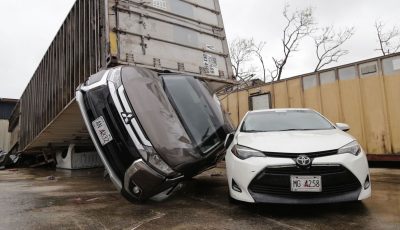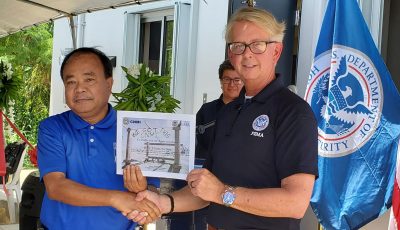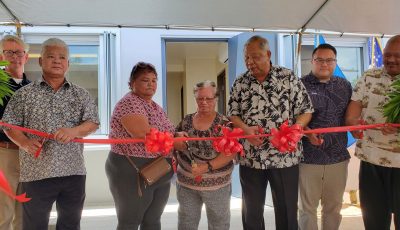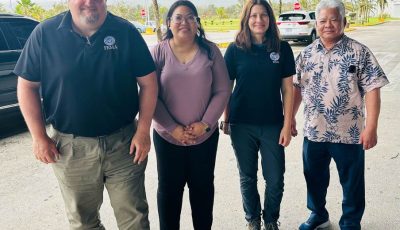‘Marianas needs expedited H visas for construction workers’
Delegate Gregorio Kilili C. Sablan (Ind-MP) wants the U.S. departments of Homeland Security and Labor to expedite H visa applications for construction workers in light of Super Typhoon Yutu.
“We do not want a lack of construction workers to slow down our recovery efforts,” Sablan said. “And expediting H visa applications, as I am requesting, in no way lessens our commitment to give preferential employment to U.S. workers.”
The Marianas has access to an unlimited number of foreign workers entering with H visas, because of Sablan’s Northern Mariana Islands U.S. Workforce Act. President Trump signed Public Law 115-218 on July 24. It exempts the Marianas from the national cap on H visas through 2029.
One particular type of H visa, H-2B, can be used to hire temporary workers. “Companies that employ construction workers cannot use H-2B visas under ordinary circumstances,” Sablan said. “But when there is a special, short-term demand, as is the case now after this natural disaster, then the H-2B visa should apply.
“I have also asked Secretary Nielsen to confirm that reading of the law for us,” he added. “Construction companies could then apply for visas with confidence. Although, of course, every application is judged on its own merits.”
A construction company applying for an H-2B visa under this “peakload need” category would need to show that it regularly employs permanent workers in the Marianas and needs to temporarily supplement its permanent staff due to short-term demand. The company must also agree that the H-2B additions will not become part of the employer’s regular workforce.
“H-2B visas are renewable for up to three years,” Sablan said. “I know there is a lot of work to do after Yutu. I know people are still making repairs from Typhoon Soudelor three years ago, but three years is a significant amount of time. And, if a new H-2B visa worker needs to be brought in even after three years, that may be possible.”
The Marianas also has access to foreign labor through the Commonwealth-only Temporary Worker program. CW permits, however, may not be used for new construction workers.
“The last thing we would want is for hundreds or thousands of new construction workers to scoop up CW permits and make life difficult for our local businesses,” Sablan said. “We have seen that happen once before and it was a disaster.”
Sablan made his request for expedited treatment in a letter to Homeland Security Kirstjen Nielsen and Labor Secretary Alexander Acosta. Acosta’s Labor Department is responsible for issuing temporary labor certifications, the first step in the H-2B visa application process. Certifications are issued when there are not enough U.S. workers who are able, willing, qualified, and available to do the temporary work.
Sablan also used the opportunity to thank Nielsen and Acosta for the aid their departments are providing right now to the Marianas. The Federal Emergency Management Agency and the Coast Guard are both part of Homeland Security. FEMA reports it has 294 people currently in the Marianas and 1,207 support personnel. The Labor Department has sent an Occupational and Health Safety officer here and granted dislocated worker funds to pay to employ workers who lost their jobs because of the typhoon.
Labor is also assisting the Commonwealth establish Disaster Unemployment Assistance to help individuals impacted by Typhoon Mangkhut. FEMA initially denied unemployment assistance after Typhoon Soudelor, but intervention by Sablan prompted reconsideration; and the program was put into effect in 2015 based on Hawaii unemployment law. (PR)



























